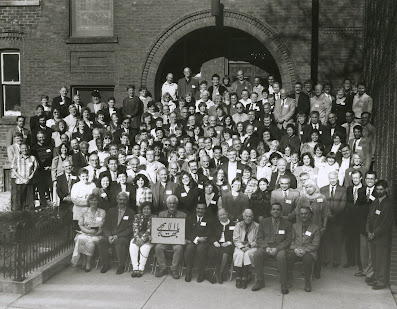…the Bahá’í International Fund. A great portion of the resources in this Fund is expended outside the Holy Land for the advancement of the Cause of God. These expenditures are of special importance at this time when the Five Year Plan gives every indication of yielding a significant advance in the process of entry by troops in the years ahead. This same Fund must finance the operation of the Bahá’í World Centre, the maintenance of the sacred properties in the Holy Land, the conduct of the pilgrimage programme, and the defence and proclamation of the Faith….
…the necessity to provide assistance from the Bahá’í International Fund to sustain the work of the Faith in the growing number of countries devastated by warfare, internal division, and endemic poverty. …the necessity to maintain, at a befitting standard, the buildings and gardens at the World Centre….
The Bahá’í International Fund must not fail to meet these needs. To assist it, we have decided to set up the World Centre Endowment Fund, for the preservation, upkeep, and security of the edifices and precincts of the Spiritual and Administrative Centres of the Faith—activities that currently form so large a part of the responsibilities of the Bahá’í International Fund. This decision follows the example of Shoghi Effendi, who during his ministry dedicated the income from lands in the environs of the Jordan Valley for the upkeep of the Holy Shrines.
This Endowment Fund, to which you are urged to contribute, beyond your general support of the Bahá’í International Fund, will initially be used to defray the related expenses, estimated at the present time to be seven million dollars annually. Whatever balance remains unexpended at the end of each year will be retained as an earmarked fund and, as it grows in the years ahead, will provide a continuing source of investment income dedicated to maintaining the magnificent setting of these Holy Places. These precincts were created gradually, during the past century, through the sacrificial outpouring of resources by the believers who responded to the vision of Bahá’u’lláh and supported the strenuous endeavours of the Master and the Guardian. It is essential that this splendour, befitting so sacred a place, be preserved undiminished in the decades and centuries ahead.
- The Universal House of Justice (From a message dated 12 November 2001to the Bahá’ís of the World; ‘Messages from the Universal House of Justice 2001-2022’)









